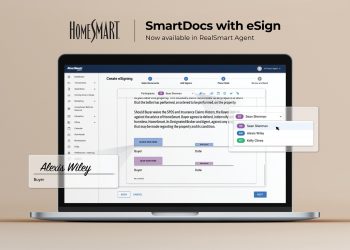
Compiled from published reports
RISMEDIA, Dec. 7, 2007–President Bush announced a plan Thursday that offers foreclosure relief to 1.2 strapped homeowners to help them avoid losing their properties.
It includes a temporary freeze on low, introductory mortgage-interest rates that could otherwise increase dramatically in the next few years.
But the plan is limited to those current with their monthly payments. It excludes anyone more than 30 days late at the time the mortgage would be modified or anyone who has been more than 60 days late at any time within the previous 12 months.
According to reports, it also only covers borrowers with adjustable rate mortgages (ARMs) resetting beginning in 2008 and leaves out any who are judged capable of continuing to make mortgage payments at the higher reset rates.
The president said 1.2 million borrowers could benefit. But of the 2.2 million subprime ARMS that are expected to reset through the end of 2008, only 240,000 of those would be covered according to an analysis made by investment banker Barclays Capital as reported in The New York Times.
“There is no perfect solution,” Bush said. “The homeowners deserve our help. The steps I’ve outlined today are a sensible response to a serious challenge.”
With some industry experts calling it “a step in the right direction,” the plan includes an agreement, brokered by Bush administration officials, with the mortgage industry, that would administer a rate freeze and the investors to whom the mortgage debt has been sold. The agreement sets conditions under which rates on certain loans could be temporarily frozen. It isn’t binding, but because it has the support of major investors, it is expected to give loan servicers much more flexibility to quickly rework some loans and direct other borrowers toward refinancings, reports said.
The plan applies to loans originated between Jan. 1, 2005, and July 31, 2007, that reset between Jan. 1, 2008, and July 31, 2010. Potentially tens of thousands of homeowners could be helped, according to reports.
But the aid will only come to those who ask for it, he said. Thousands of borrowers who are falling behind on their payments have been sent letters about the options, and Bush also urged people to call a new hotline: 1-888-995-HOPE.
The announcement followed the news earlier yesterday that home foreclosures surged to an all-time high in the July-September period. The Mortgage Bankers Association reported that the percentage of all mortgages that started the foreclosure process in the third quarter jumped to a record 0.78%, surpassing the previous record of 0.65% of all mortgages in the second quarter.
In a statement released by the Center for American Progress, Andrew Jakabovics, associate director for the Economic Mobility Program, said, “It has taken a while, but even the Bush administration, long in denial about the broad negative effects the mortgage crisis is having on individual borrowers, entire neighborhoods, and the national economy, has come around to recognizing that there is a necessary and appropriate role for government in solving the problem. As with other serious crises that have happened on Bush’s watch, the solution is to make it the next administration’s problem.”
He continued, “The five-year freeze is a welcome opportunity for the subset (no more than 30 percent) of borrowers put into suspended animation. But it also fails to address the needs of the people whose rates have already reset or the growing number of borrowers who are creditworthy but have negative equity in their homes as a result of widespread foreclosures and who have no way to get out of their challenging loans. It also does nothing to restore faith in the smooth operation of our financial system, when breakdowns in the credit market can accelerate the economic downturn or contribute to a recession. The administration can and should do more.”
Bush has been criticized for not addressing the subprime crisis, which has had broader affects on the financial market. But he also was careful not to sound as if he were offering a government solution to the issue. He billed his plan as a voluntary, private-sector arrangement that involves no government money.
“We should not bail out lenders, real estate speculators or those made the reckless decision to buy a home they knew they could never afford,” Bush said, after meeting with industry leaders at the White House. “But there are some responsible homeowners who could avoid foreclosure with some assistance.”
During the press conference, the president also called on Congress to act quicker on passing mortgage relief legislation, including the FHA Modernization bill, the change in tax code and a bill enabling local and state governments to issue bonds to finance mortgage refinancings. All have been held up in the Senate for weeks or months.








